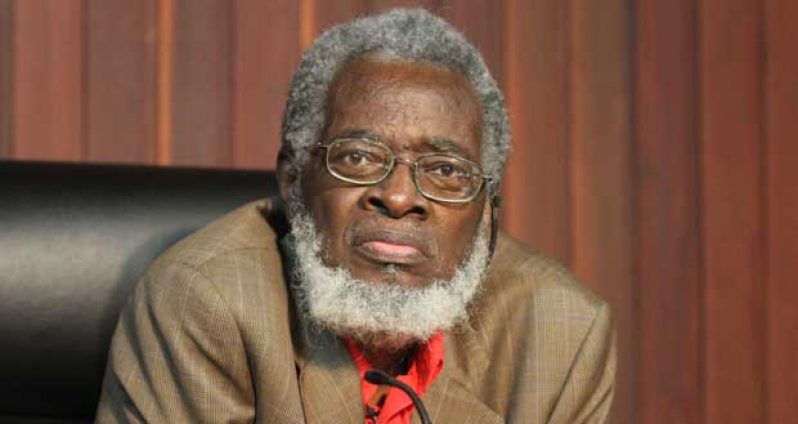– immigration laws of Guyana have been offended -Luncheon
THE work permit and extension of stay of International Republican Institute (IRI) resident Country Director, Glenn Bradbury, were revoked by Government, according to Head of the Presidential Secretariat (HPS), Dr. Roger Luncheon.
Speaking at his weekly post-Cabinet press briefing, held yesterday at the Office of the President (OP), he explained that the revocation of the documents were based on the conclusion that the “immigration laws of Guyana

have been offended” by Bradbury and his actions in Guyana.
He added that Government understands that the revocation was communicated by Bradbury to his employer, the United States Embassy in Guyana, and the Canadian High Commission, as he is a Canadian citizen.
Bradbury, according to an online professional profile, has more than 20 years of experience at the House of Commons of Canada as a Senior Parliamentary Assistant and Policy Advisor to Members of Parliament; and has amassed considerable expertise in several areas – governance, parliamentary and committee procedure, legislative drafting, regulatory regime reform, public policy analysis, strategic communications, media relations, reputation management, stakeholder engagement, issues management, and public affairs.
The IRI Country Director has been in Guyana for some 10 months now, since July 2013, and his company, the IRI, is tasked with the implementing of the controversial US$300M Agency for International Development (USAID) funded Leadership and Democracy (LEAD) project.
The Institute, an American organisation, has a reputation for interference in the internal politics of a country and several stakeholder groups have registered concerns over the U.S. position on going ahead with LEAD on the basis of this recognition.
AWAITING WORD
Luncheon told the media that the current Administration is at present awaiting a “timely and official” word from the United States Ambassador to Guyana, Brent Hardt, on Government’s reiteration of both its willingness to engage in talks over the project, as well as the condition that the implementation of the project be halted to facilitate talks.
“We will not negotiate under duress,” he stressed.
Luncheon noted that the question put to the United States, through Hardt, is whether or not the country is interested in re-engagement on the project, given that its implementation be halted, or not.
The HPS met last Thursday with the US Ambassador at the Office of the President and explained that the meeting was an opportunity to allow the past actions of Hardt in moving ahead with the project, despite Government’s clear objections, in the interest of moving forward from a consensual position.
“It was an amazing assertion by the US Ambassador to say the Government knew and were informed of the project’s implementation,” he said, referencing Hardt’s comments on March 27 over the status of the project.
The HPS reiterated that correspondence between the Government and the US Ambassador had made clear the Government’s position on the project.
At his previous press conference, on April 17, the HPS had said, “I do believe we have been specific on our position on this matter. It seems that we have either not been heard or not understood.
“…bad faith comes to mind immediately, readily, but non-disclosure of the continued implementation of the disapproved project, even in the midst of the fervor to have the bilateral engagement concluded to our mutual satisfaction, speaks of premeditation”.
According to him, the Guyana Government was horrified in discovering a project on conflict resolution, while, at the same time, the “one party” was implementing the components of a controversial project in its entirety.
The first component of it seeks to encourage consensus-building in the National Assembly and facilitate more effective interaction between the Assembly and citizens. The second component aims to strengthen the effectiveness of the National Assembly and boost citizen engagement with Parliament. The third aspect of LEAD is to motivate and better equip Guyanese youths to constructively engage in political and civic processes, and the fourth involves civic and voter education relating to elections and local government reform.
The project was not approved by Cabinet and this was formally indicated to the relevant authorities on October 26, 2013.
(By Vanessa Narine)












